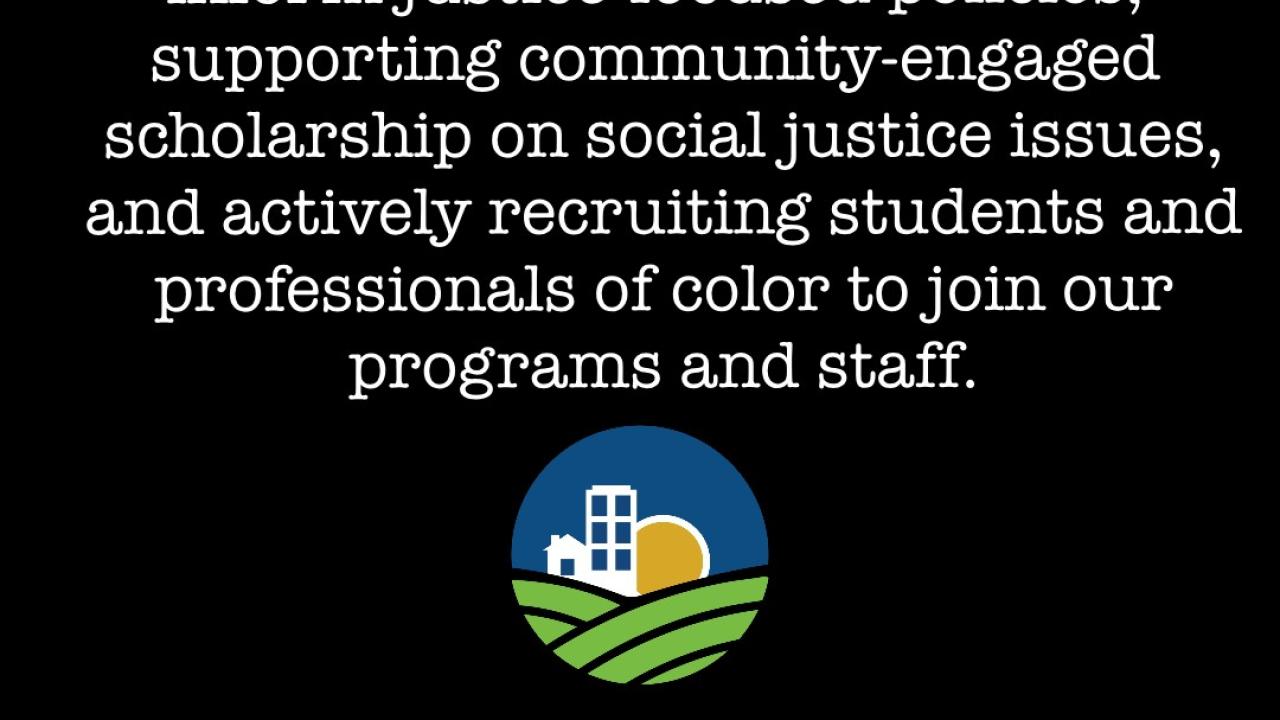
Days of Rage, Sorrow, and Hope
Like so many of you, the staff at the Center for Regional Change have been confronting feelings of rage and sorrow over the murders of George Floyd, Breonna Taylor, Ahmaud Arbery and so many others, the tip of a very large iceberg of systemic racism. We also grieve for more than one hundred thousand COVID-related deaths that disproportionally affect people of color and low-income people. And, we are seeking ways we can be in solidarity and support of people of color who are dying in the streets and in their homes and those who are protesting and speaking out to make Black lives matter. We recognize that this must be a cause and value for everyone to address the legacies of slavery, white supremacy, over-incarceration and militaristic policing, and continued racial discrimination that shape and shame our country. At the same time, we see opportunities for profound social transformation as more and more people realize that the systems of oppression that have divided and degraded our country must change.
As the protests continue, we are reflecting on what the Center for Regional Change can do to support this movement. We recognize that we are positioned in a place of privilege being in a university and that we can use this position to work for social and racial justice. We turn to the insights from academic peers like Dr. Stacey Ault from Sacramento State University who recently published a very powerful and practical article called “10 Ways For Non-Black Academics to Value Black Lives.” She calls on (and out) those in education to go beyond remorse and sorrow to action. Her advice on self-education on race and racism, multi-racial allyship, holding space for trauma and healing, critical reflection on how we as individuals and members of our professions can reproduce and disrupt racial inequities, and using our writing, teaching, and community engagement to further the cause of racial justice are all crucial and timely.
We also look for ways to address racial justice, trauma, and healing within our own university community. We are grateful for the steadfast leadership of Chancellor Gary May who, over the last several days, has candidly shared how these injustices have impacted him as an African American man and consistently demonstrated his ongoing commitment to inclusive policies and practices. We encourage our university colleagues to utilize resources compiled by the UC Davis Office of Diversity, Equity, and Inclusion that provide support for their health, well-being, and desire to take action.
Here at the CRC we seek to use our academic privilege by working with social, environmental, and racial justice organizations as valued project partners, using our research to inform justice-focused policies, supporting community-engaged scholarship on social justice issues, and actively recruiting students and professionals of color to join our programs and staff.
And yet, we know this is not enough and more courageous action is needed. We recognize that this is a long-term struggle, and we commit to forging new partnerships with you and exploring creative ways to take on these systemic problems together in the months and years ahead.
In community,
Bernadette Austin, Acting Director
Jonathan London, Faculty Director
